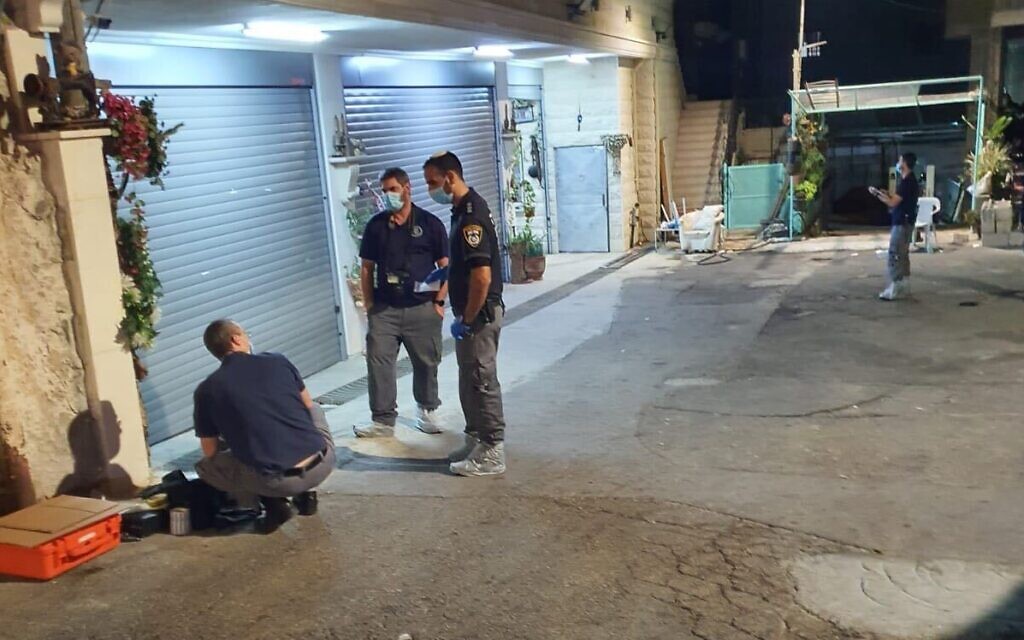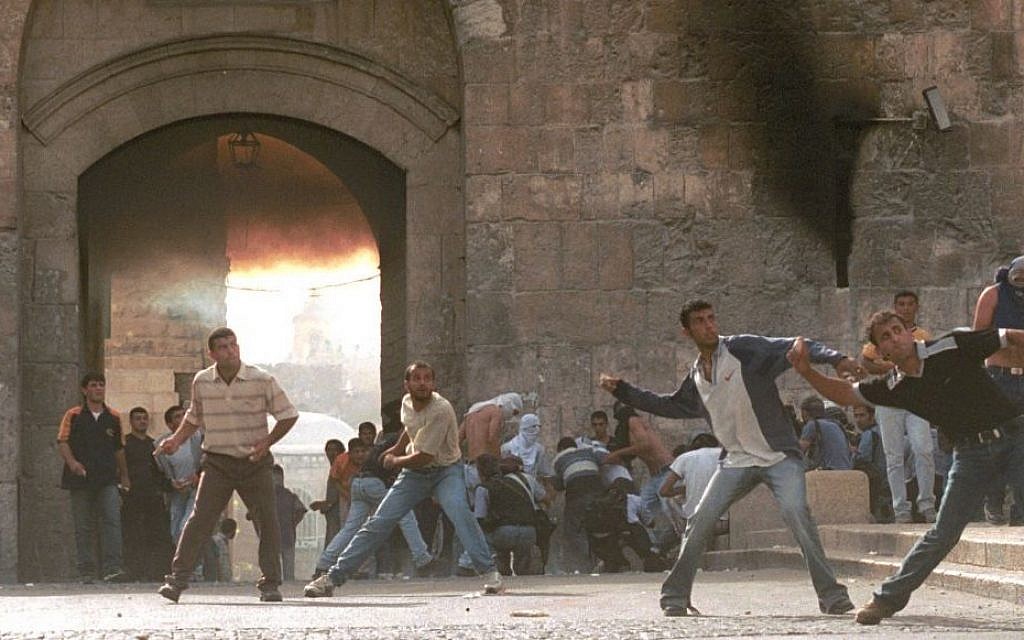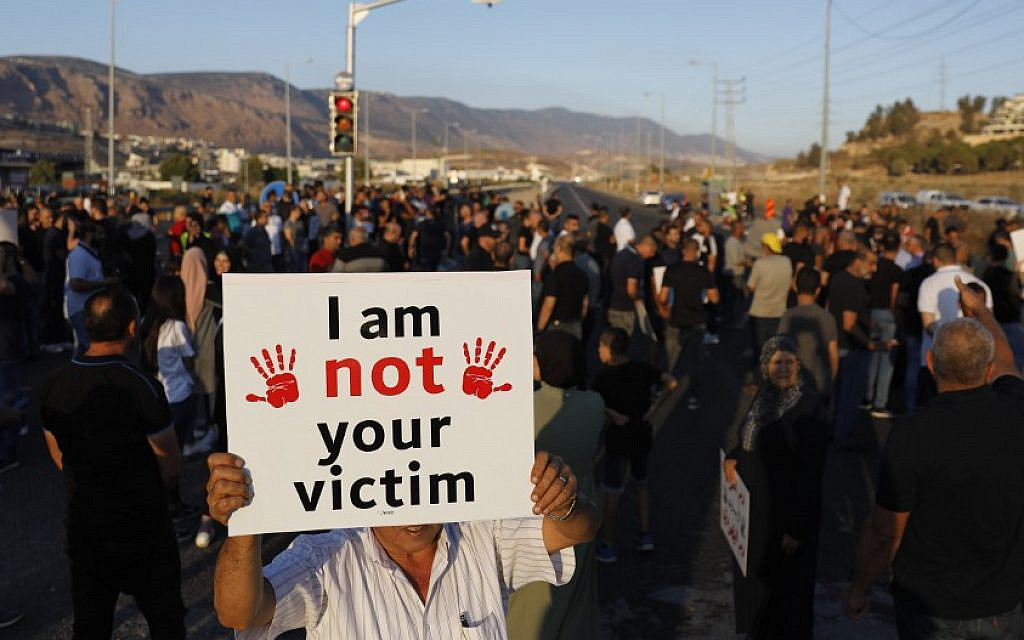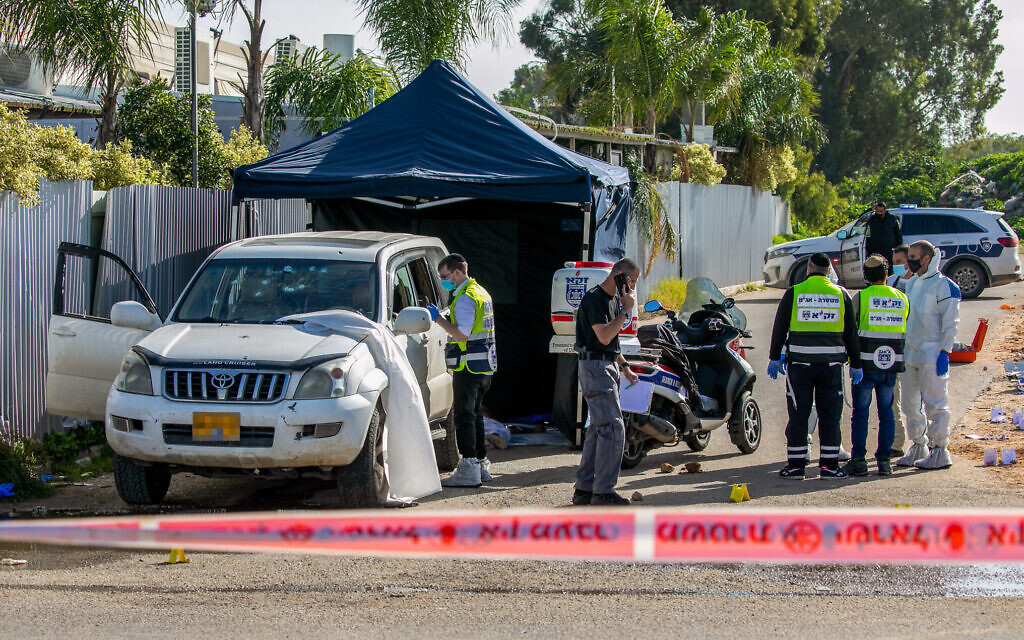Israeli Palestinian Cities Strangled by Palestinian-on-Palestinian Violence
"Many Arab Israelis blame the violence on organized crime, and accuse police of devoting too few resources to root it out in Arab cities, towns and neighborhoods. Experts, policymakers and activists argue that even as Israeli police have cracked down on crime among Israeli Jews, not enough has been done to combat endemic violence in the Arab community, which has long suffered from official neglect.""Over the past few years, Arab criminal groups have proliferated and taken over spaces vacated by state institutions and police. A new reality has been created in Arab towns and cities, one in which powerful protection rackets have access to an enormous quantity of weapons, lend money and collect payments at the barrel of a gun, and open fire at Arab mayors and their family members.""The metastasizing phenomenon has also fueled gang wars between different groups jockeying for turf and clientele, turning towns into battlefields and sometimes catching innocent bystanders in the crossfire. 'It is the Arab crime organizations who rule Israel today when it comes to the criminal underworld. They are strong, determined, forceful and they don’t screw around. They have enough weapons for an entire army', an anonymous senior cop told Channel 12 in 2018.""The underworld violence is mostly confined to Arab areas of the country, as seen in the disproportionate number of killings among the Arab community compared to Jewish areas of the country. Even though Arab Israelis constitute roughly 21% of the population, they accounted for 71% of the 125 homicides in Israel in 2019."Aaron Boxerman, The Times of Israel, 31 December 2020
 |
| Police at the scene of a fatal shooting in the northern town of Bi’ina, October 4, 2020 (Israel Police) |
What
is it about Palestinian history and culture that might be responsible
for a seeming proclivity to violence and gangsterism? The Palestinian
Authority ostensibly has no influence on Palestinians living in Israel
as part of the Israeli population with full citizenship. It does, on the
other hand, exercise influence on all Palestinians when Mahmoud Abbas
exhorts Palestinians to 'resist' the 'occupation', when he sees to it
that Palestinian children under his autonomous rule are taught from
Israel-hating curricula where Jews are portrayed as killers of
Palestinians and children are urged to join the 'resistance' and plan
their future as martyrs.
 |
| Arab residents of Jerusalem throw rocks at Israeli police near the Lions Gate in Jerusalem’s Old City on October 6, 2000, at the outset of the second Palestinian intifada, or uprising (Nati Shohat/Flash90) |
Palestinian
citizens of Israel are known to succumb to the invitation extended to
them by the PA to vent their anger against Israelis and they do this
with regularity through knifings, vehicular attacks and other means by
which they hope to exact maximum damage through killing Israeli Jews and
being glorified by the PA as martyrs to the cause, receiving generous
monthly stipends if they're incarcerated, and if they die while
committing atrocities those monthly payments for 'heroism' go to their
families. It cannot help but have an effect on those within Palestinian
society vulnerable to suggestive hatred.
Palestinian
citizens living in Israel have called increasingly upon Israeli police
to solve the problem of Palestinian-on-Palestinian crime. The response
of the Israeli Police has been less than impressive to those calling for
an end to the fear and violence they live with. There is that age-old
conundrum of a society failing to influence its members for the better,
that when an institutional force of another society enters the picture
to try to bring order and security to bear, invariably criticism will
surface to the effect that the 'intruding' society has been overbearing
in its response.
Israel,
sensitive to the never-ending criticism coming at its governance from
outside sources such as states within the European Union, always highly
critical of Israeli action as it applies to Palestinians, are quick to
pounce declaring that Israel has trod on Palestinians' human rights.
There will always be many within the Israeli-Palestinian community who
plead for police action to clean up the crime the community is forced to
live with, while others from within the community await the opportunity
to claim undue force brought to bear by an 'apartheid' government.
The
poisonous clamour from the international community over any hints that
Israel's police force might exact stern measures to persuade the
Palestinian criminal class that their days of free reign to sow terror
among their own is over, goes a long way in dissuading the government of
Israel from taking such action. To be sure, Israeli police respond to
the violence, but in the same token even while they are aware of what is
occurring, the reality is that information and evidence from the
community itself to aid the police in their work is hard to come by.
Obviously
for the simple enough reason that it is seen as a 'betrayal' for
Palestinians to aid Israeli police in cleaning up the gangsters among
them along with the certain knowledge that they and theirs will be
punished by retributive action. Both sectors are between a rock and a
hard place; the police for fear of recriminations by the foreign press
and their government agencies, the Palestinian communities for fear of
their own victimizing them even further through indiscriminate killings.
 |
| Arab Israelis protest against violence, organized crime and recent killings in their communities, in the Arab town of Majd al-Krum in northern Israel on October 3, 2019. (Ahmad GHARABLI / AFP) |
Matters
have become so desperate from within the Palestinian towns and cities
cowering in fear from the violence of the gangs among them that huge
protests have been taking place calling on the Israeli government to
protect its Palestinian citizens -- from other Palestinian citizens who
have no regard whatever for the security and human rights of their own
in the greater interests of terroristic glory and the acquisition of
ill-gotten gains.
“I lost my husband and two children. They were shot dead right in front of us in our home, and yet there have been no arrests so far. In 2012, I participated in a Knesset hearing. I felt optimistic when the prime minister turned to me and promised that the case would be handled, and that they would find the murderers, but nothing actually came of that. When I saw that no progress was being made, I asked the district police in Haifa about where the investigation stood. One police investigator told me, ‘I can tell you who came into your house and shot your husband and children, but we need evidence.’ I refused to accept his response. I didn’t want to know who shot them, because I am sure that if I was Jewish, they would have found the murderer and arrested him in a matter of 24 hours."
 |
| Police at the scene of a deadly shooting in the central city of Lod on December 28, 2020. (Yossi Aloni/Flash90) |
Labels: Government of Israel, Israeli Police, Murders, Palestinian Gangs, Palestinian-Israelies, Violence


<< Home